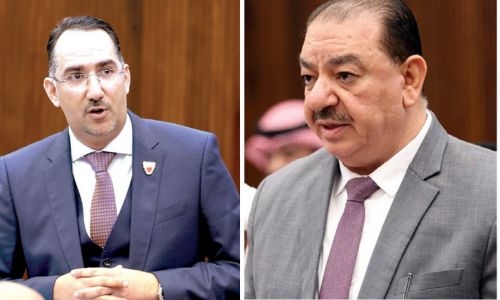The Kingdom of Bahrain has recently implemented new executive regulations for the law on human organ transplantation, marking a new era in organ transplantation in the country. These new regulations bring significant changes and amendments to the existing framework. A key highlight of the new regulations is the legalization of organ transplantation from brain-dead individuals, which is expected to increase the availability of organs for patients in need. The regulations also prohibit practices such as organ transplantation that could lead to lineage confusion, as well as organ buying and selling through any means. To oversee the implementation of these regulations, a central committee has been established to manage and regulate all aspects of human organ transplantation in Bahrain.
Medical professionals and members of the Shura Council and the Council of Representatives have expressed optimism about the detailed regulations contributing to providing organs for patients in need, particularly those requiring kidneys or livers. Dr. Hani Al Saaati, a member of the Shura Council, highlighted the critical need for kidney transplants in Bahrain, with 800 kidney patients in the country currently. He emphasized that 10-15% of these patients, or 80 to 100 cases annually, require kidney transplants to reach the internationally recommended rate. Dr. Al Saaati revealed that 20 kidney transplants were successfully performed in the past year after a long hiatus, and he expressed confidence that Bahrain will achieve the target transplant rate within the next two to three years.
Dr. Al-Saaati also stressed the significant economic benefits of performing organ transplants in Bahrain, citing that kidney patients currently cost the government approximately BD20 million annually for dialysis sessions alone, excluding other costs like healthcare services, transportation, medication, and treatments. He explained that each dialysis session costs the government between BD80 and BD120, with patients typically undergoing three sessions per week, translating to BD1,500 per month and BD18,000 to BD25,000 per year for each kidney patient. Dr. Al-Saaati compared the cost-effectiveness of kidney transplants performed in Bahrain to those conducted abroad, stating that transplants in Bahrain cost less than 40% of the total cost abroad, with an average cost of BD6,000 compared to BD25,000 for the transplant alone abroad.
MP Dr. Mahdi Al Shuwaikh, a member of the Services Committee of the Council of Representatives, considered the Minister of Health’s decision to issue the executive regulations for the law a significant step forward. He emphasized that these regulations are a legislative necessity to implement the laws effectively. Dr. Al Shuwaikh also highlighted the complexity of organ transplantation as an issue with significant humanitarian, social, and medical implications. The implementation of these regulations is expected to streamline the process of organ transplantation in Bahrain and ensure that patients in need have access to the organs they require for treatment.











